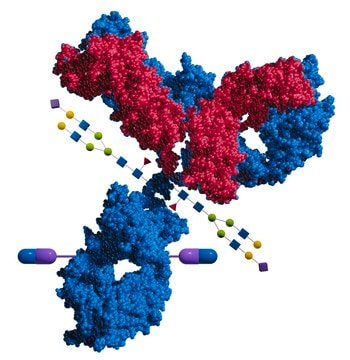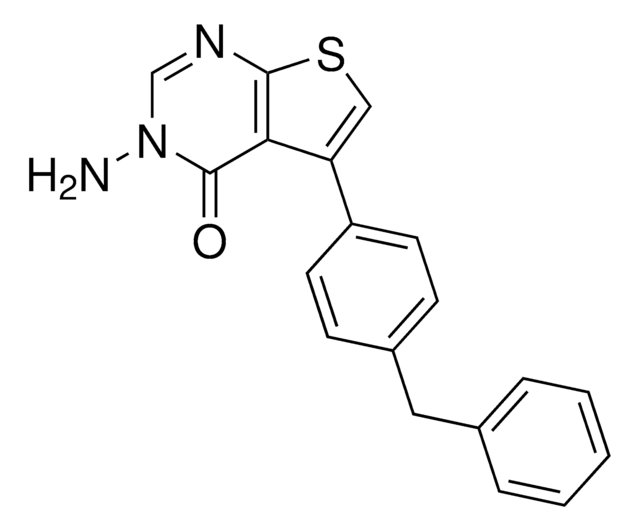S1445
Anti-Somatostatin Receptor Type 1 antibody produced in rabbit
affinity isolated antibody, buffered aqueous solution
Synonym(s):
Anti-SSTR1
About This Item
Recommended Products
biological source
rabbit
Quality Level
conjugate
unconjugated
antibody form
affinity isolated antibody
antibody product type
primary antibodies
clone
polyclonal
form
buffered aqueous solution
species reactivity
human
technique(s)
immunohistochemistry (formalin-fixed, paraffin-embedded sections): 8 μg/mL using human pancreas, Islets of Langerhans
UniProt accession no.
shipped in
dry ice
storage temp.
−20°C
Gene Information
human ... SSTR1(6751)
mouse ... Sstr1(20605)
rat ... Sstr1(25033)
General description
Immunogen
Biochem/physiol Actions
Physical form
Disclaimer
Not finding the right product?
Try our Product Selector Tool.
Storage Class Code
10 - Combustible liquids
WGK
nwg
Flash Point(F)
Not applicable
Flash Point(C)
Not applicable
Certificates of Analysis (COA)
Search for Certificates of Analysis (COA) by entering the products Lot/Batch Number. Lot and Batch Numbers can be found on a product’s label following the words ‘Lot’ or ‘Batch’.
Already Own This Product?
Find documentation for the products that you have recently purchased in the Document Library.
Our team of scientists has experience in all areas of research including Life Science, Material Science, Chemical Synthesis, Chromatography, Analytical and many others.
Contact Technical Service






